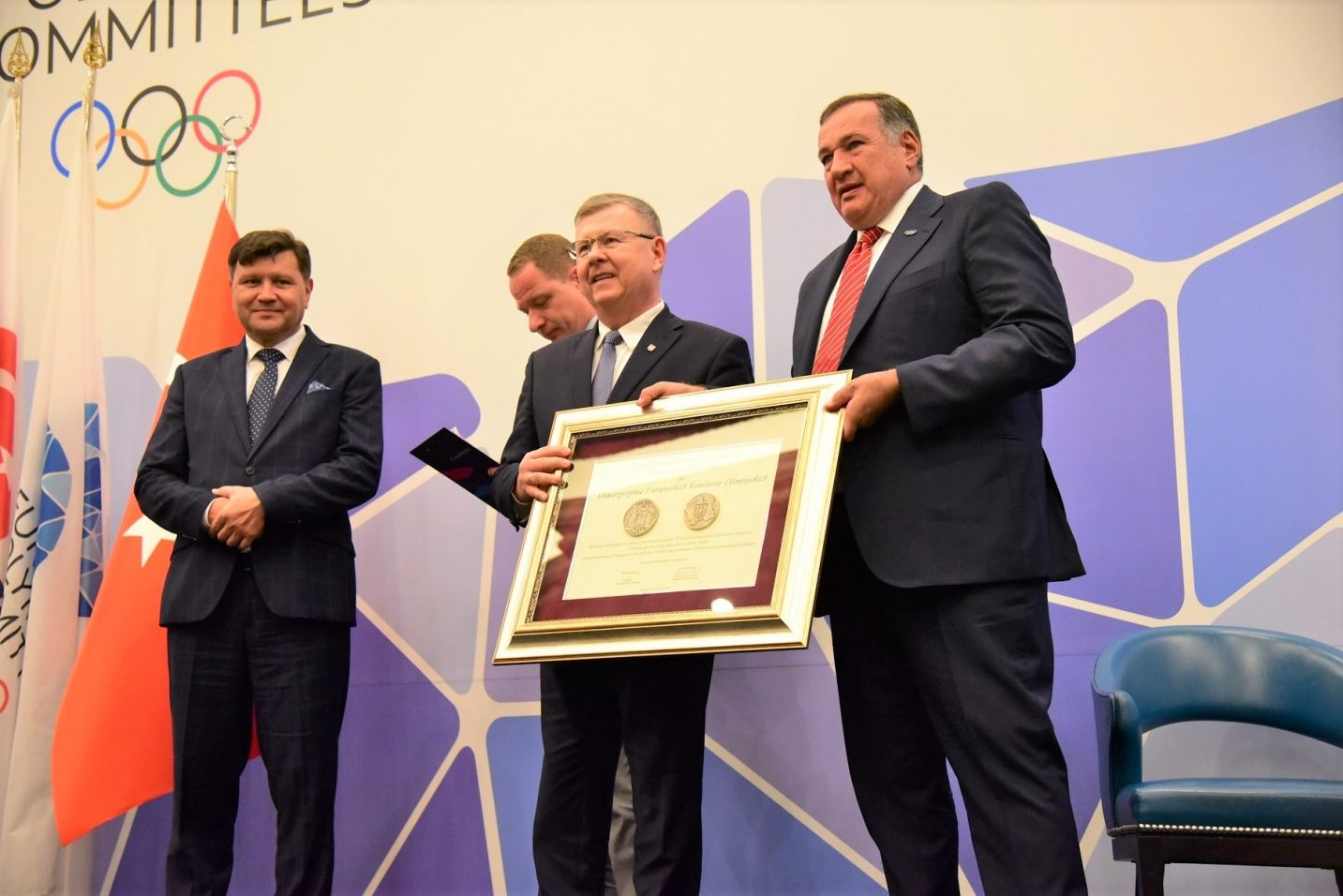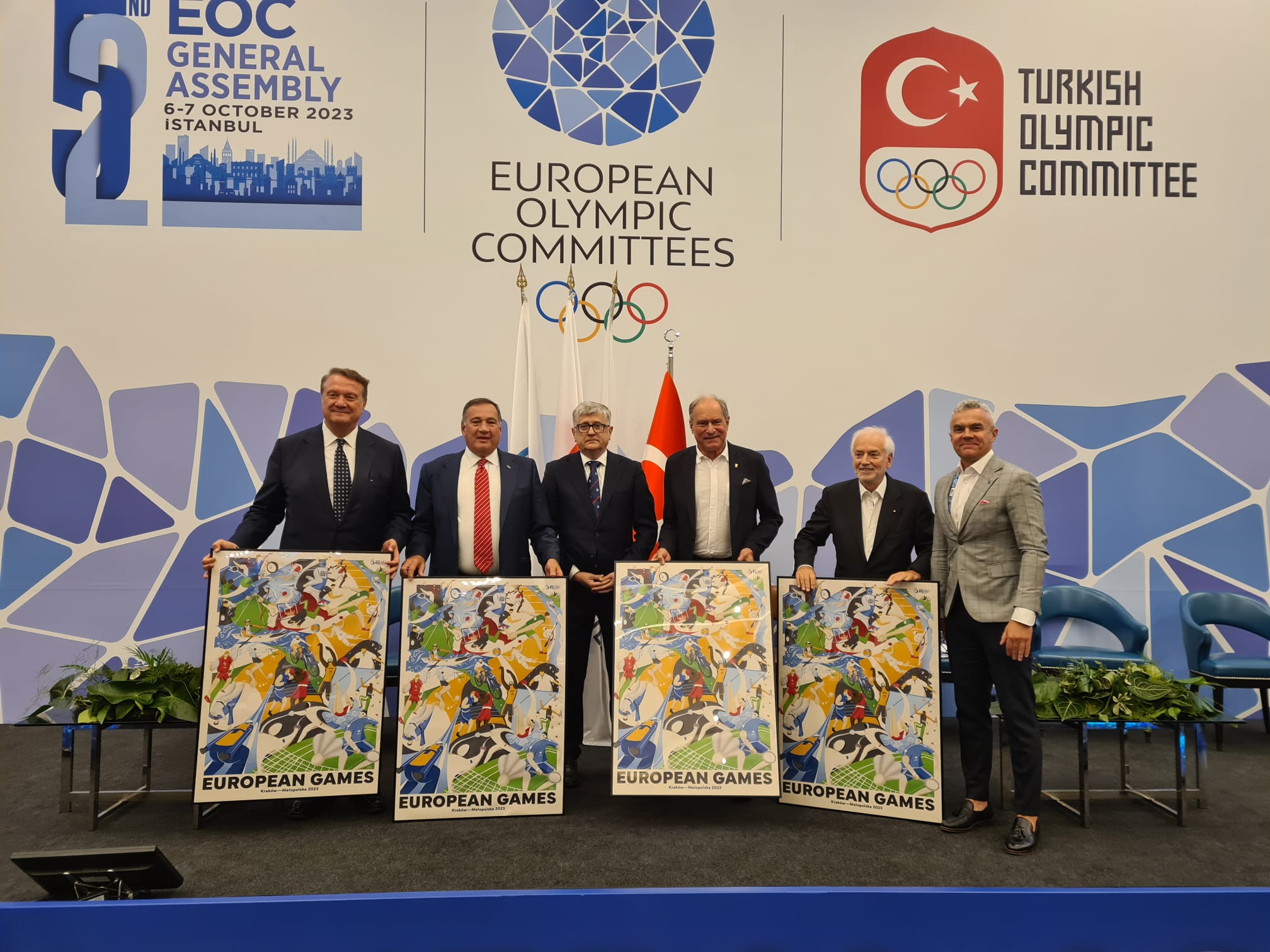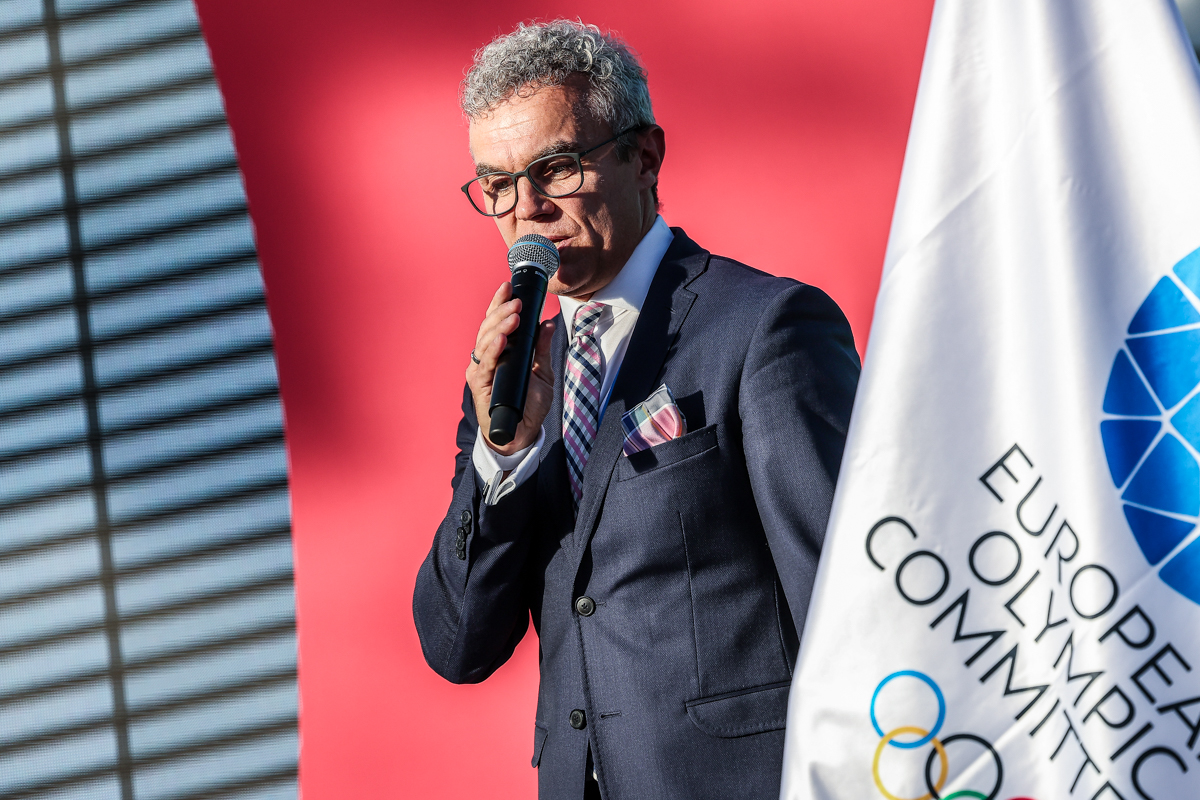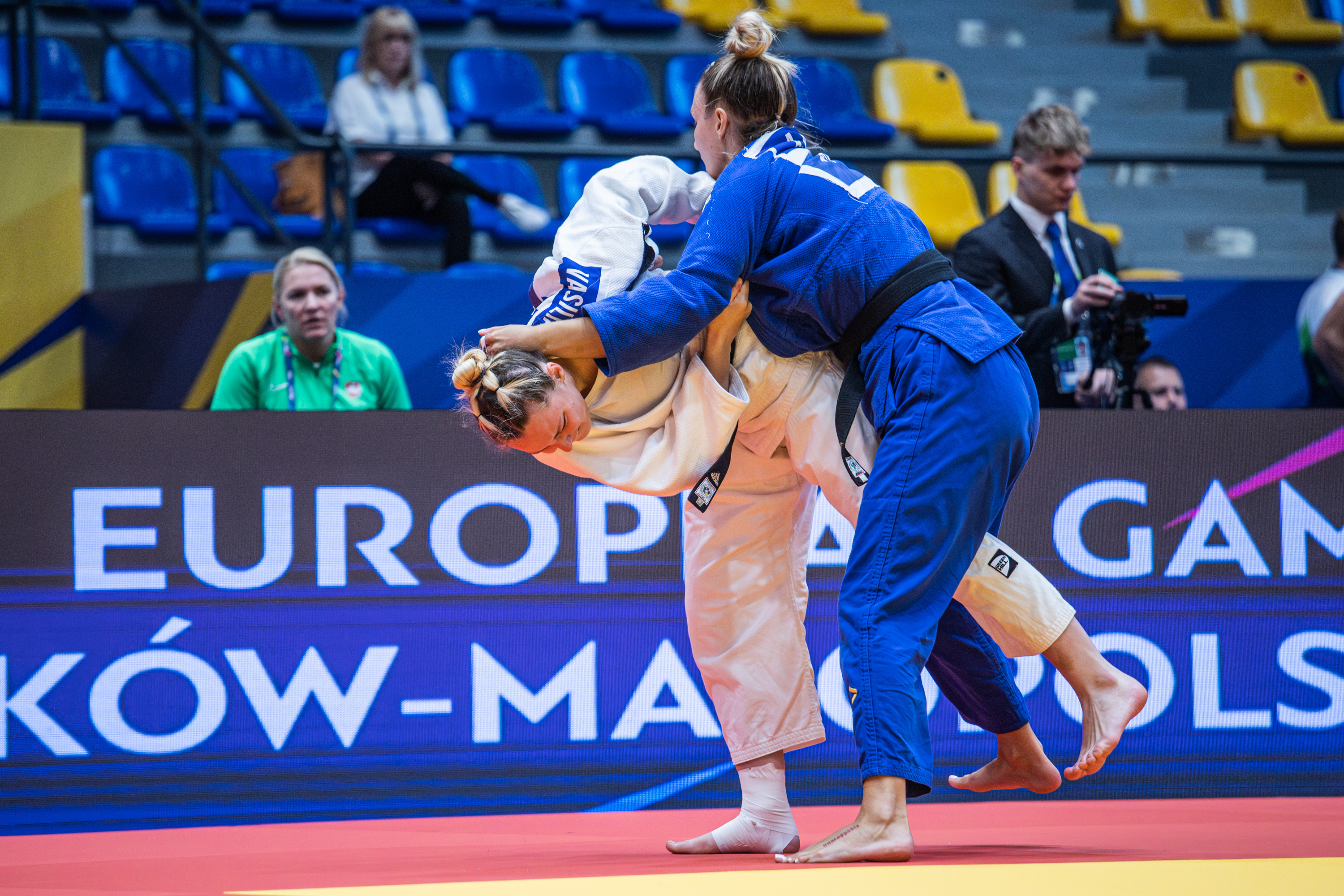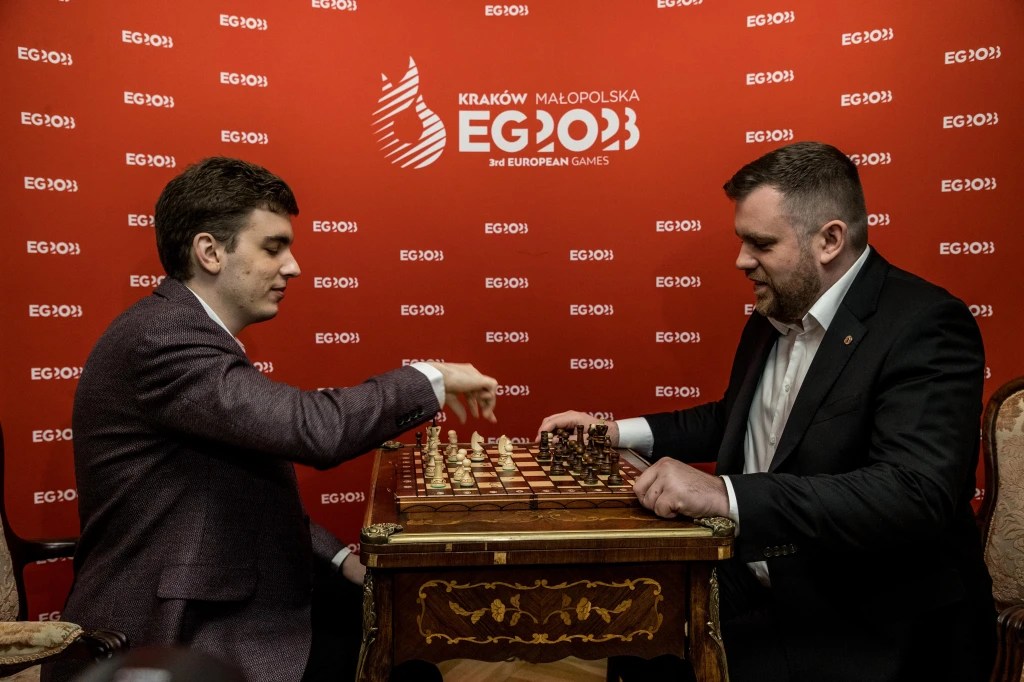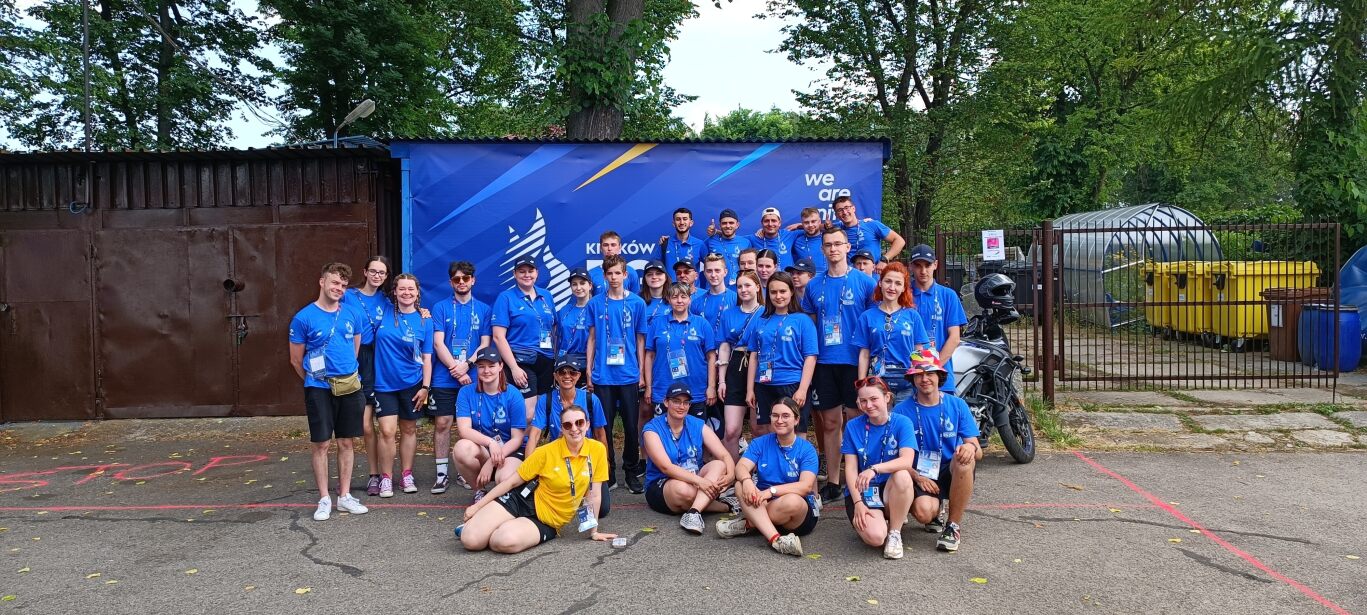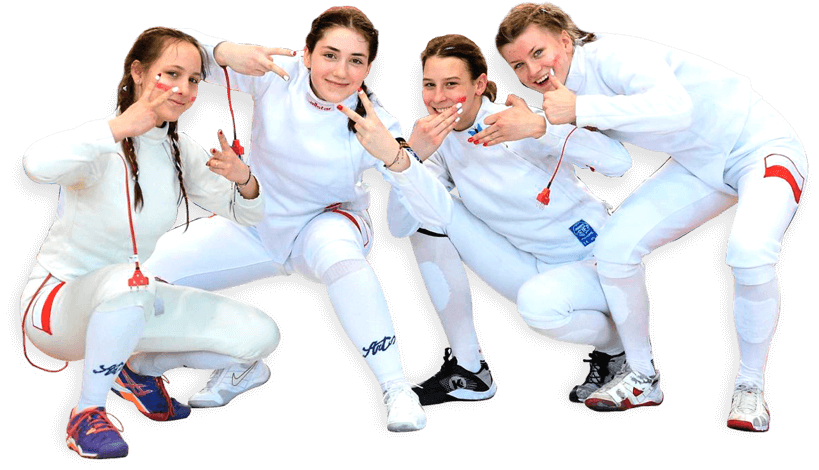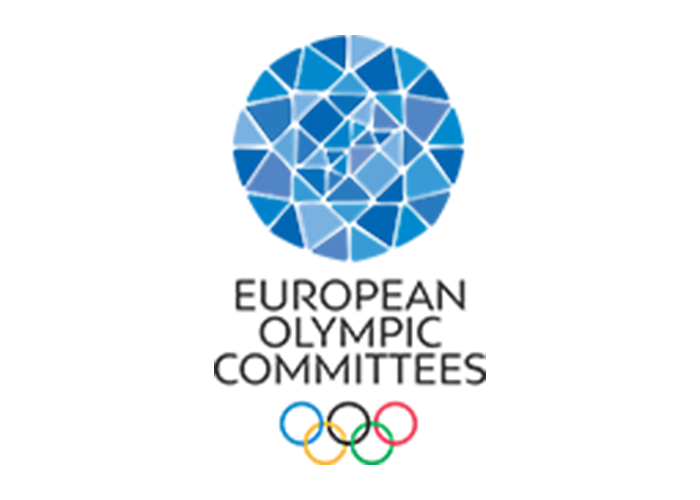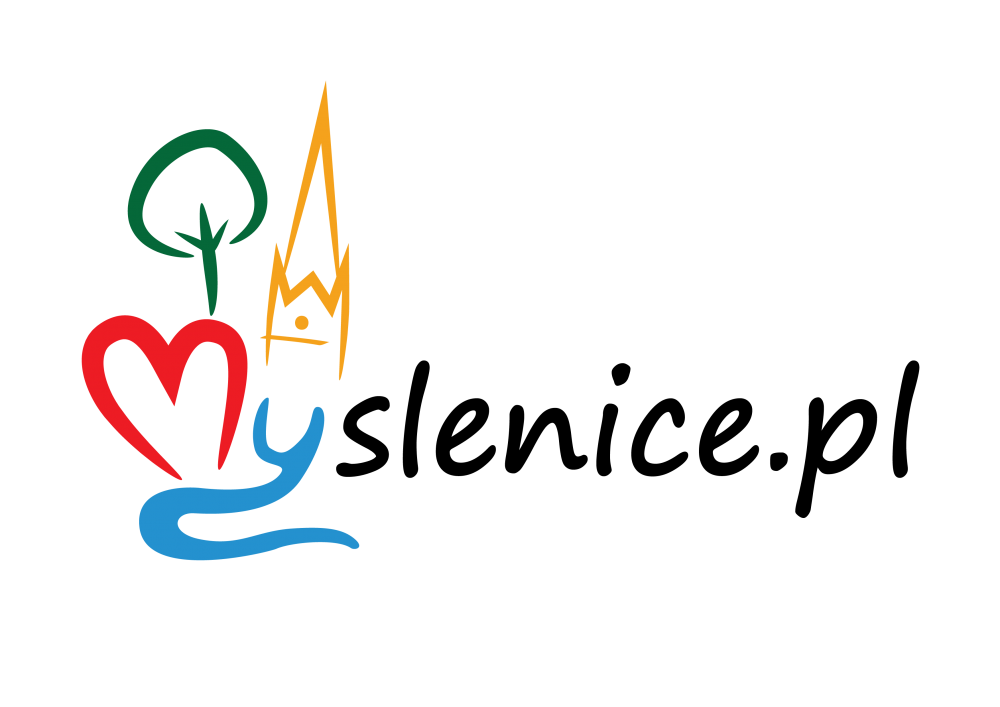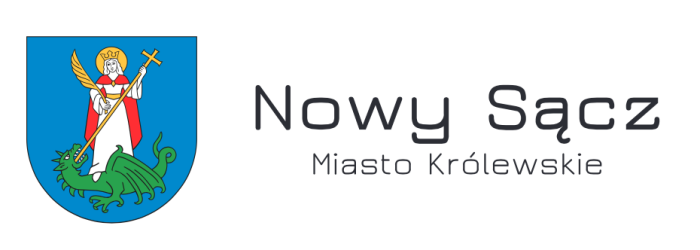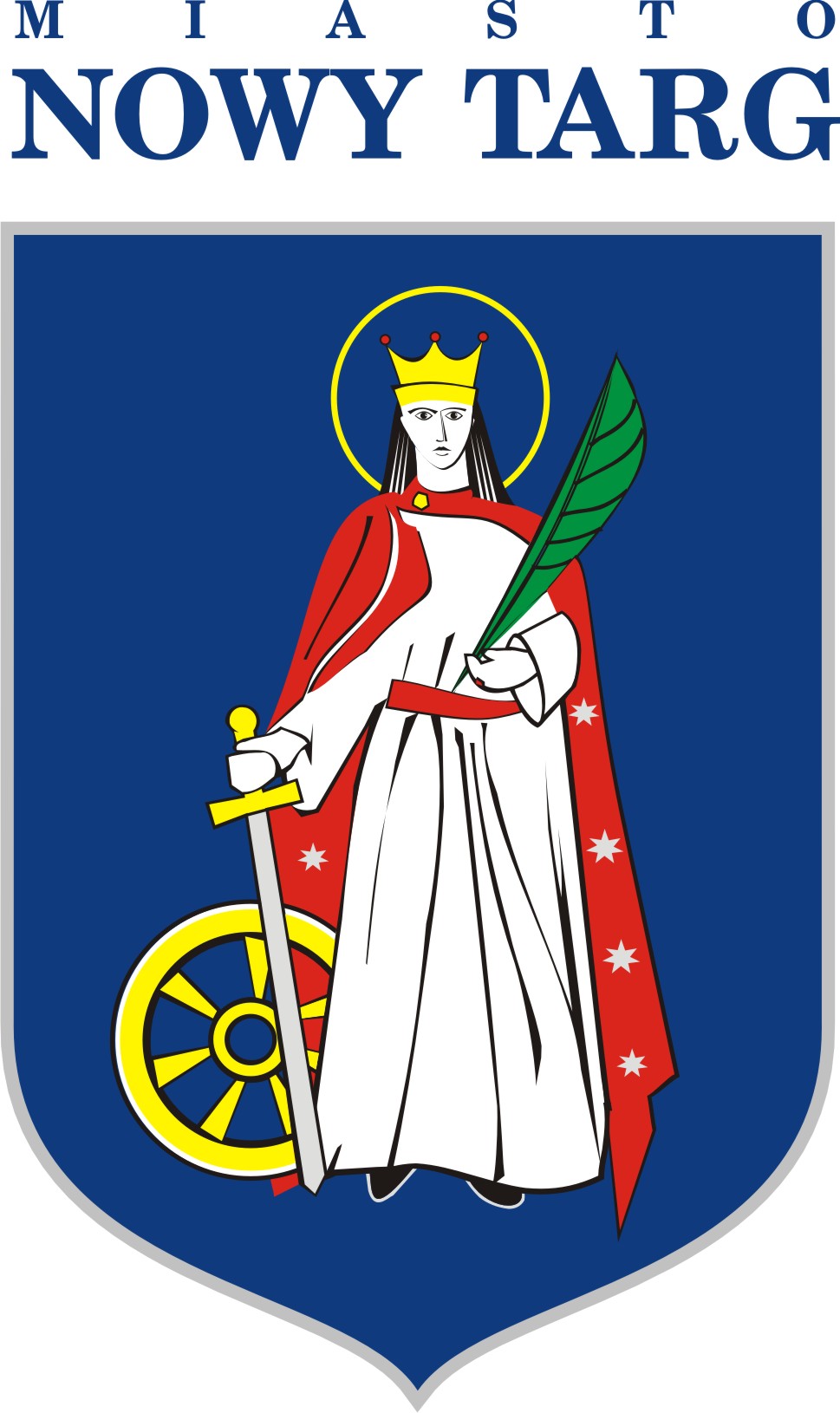Rugby 7’s at European Games
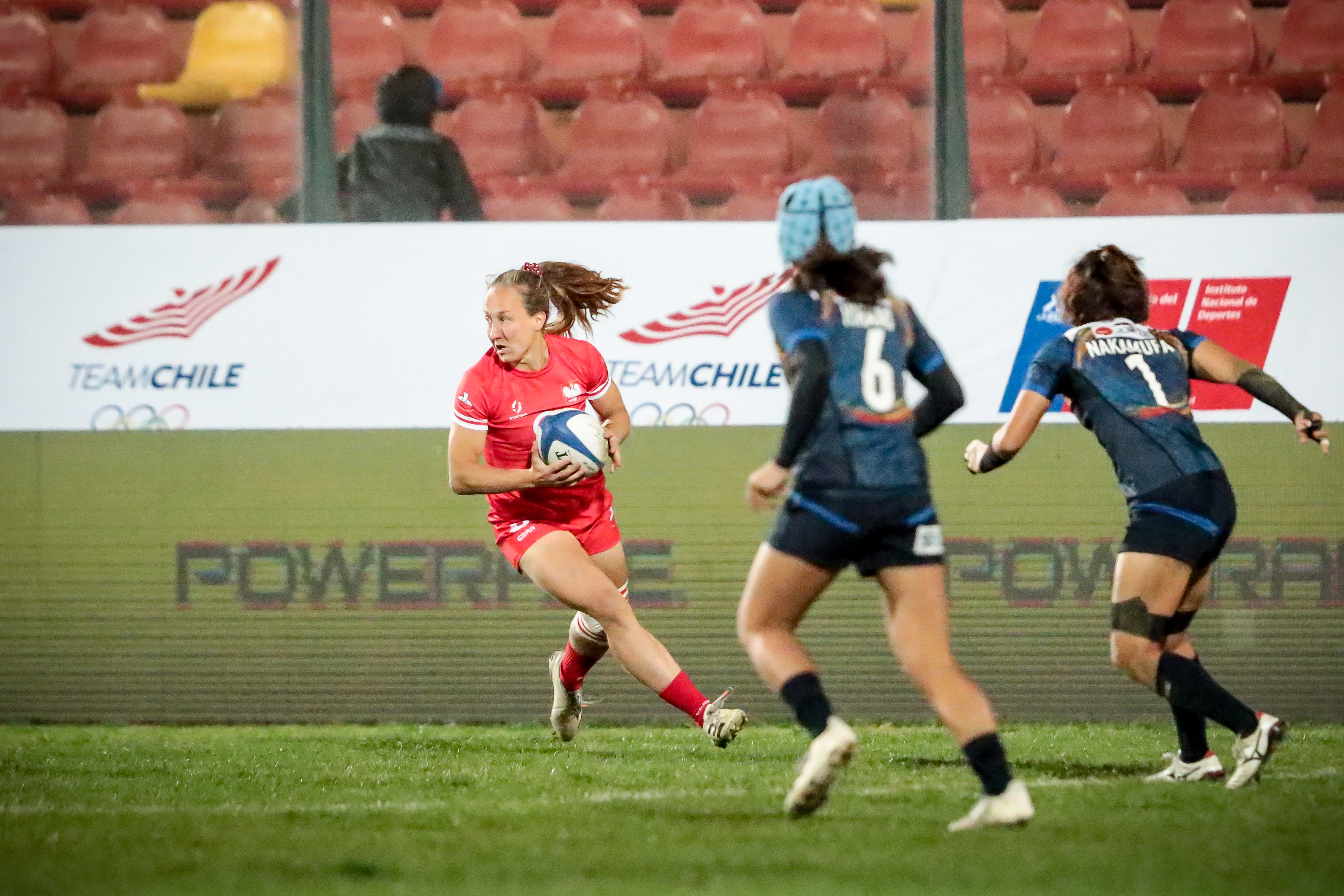
The third edition of the European Games taking place this summer will feature a
sport that has had an incredible growth over the last couple of years: Rugby
Sevens.
Rugby 7s has, for the first time in history, been added to the sports programme of the biggest multi-sport event in the continent. Kraków-Małopolska 2023 will bring together the 14 best national rugby sevens teams in Europe in the men’s and the women’s categories to compete for the European gold and qualifications for Paris 2024.
The first rugby sevens matches will begin on the 25th of June, and the finals are scheduled to be played on the 27th of that month. The elite of the discipline will be present at the European Games – which includes exactly 312 athletes. We have had to chance to interview the captains of the Spanish national men’s squad – Juan Ramos, and the captain of the hosting country’s (Polish) national women’s team Karolina Jaszczyszyn, to hear their thoughts about the upcoming European Games.
WHAT IS RUGBY SEVENS?
This is a growing discipline. While it has come an incredibly long way in terms of popularity in the last 10 years, after its inclusion in the Olympics programme – it still has a long way to go. Since many don’t know much about this exciting sport that has been added to the EG23 sports list, here, we present the discipline. Rugby sevens is quite a “young” discipline. It was first played in the Scottish border town with England called Melrose in 1883. The first-ever game of rugby sevens was part of a fundraising drive for the local club of the town. From there, the sport slowly grew and was popularised throughout the 20th century and especially the 21st century to become what it is now.
Rugby Sevens is described by many as an “abbreviated” form of rugby. As the name suggests, the sport requires two teams of seven players on the pitch. Usually, these players are divided into three forwards and four backs. It is played on a full-size rugby pitch, and similarly to its mother sport – rugby 15s, the opposing teams compete to score points through tries, conversions, and occasionally, penalties and drop goals. As in rugby 15s, the ball must be passed backwards and can only be moved up the pitch by running with it or kicking it. The rugby 7s games are shorter than those of rugby 15. Each half of a match is 7 minutes long, adding to a total of 14 minutes for the whole game. It is an amazingly explosive and demanding sport that requires players to be incredibly fit and have plenty of skill, speed and stamina.
The interviewees – Juan Ramos and Karolina Jaszczyszyn
Juan Ramos (11 October 1995) is a rugby player and the Spanish men’s team
captain. He has competed with the team since his debut in London in 2018.
Recently, he played a key factor in Spain’s Rugby Europe Championship winnin
team in 2022. He will be part of the squad representing Spain this summer in
Krakow for the European Games.
Karolina Jaszczyszyn (6 June 1988) is a rugby sevens player and the Polish women’s team captain. She is known for the impact she has had on the squad’s success over the recent years as the leading player on and off the rugby pitch. Recently, she played a huge part in Poland winning the European title in the 2022 Rugby Europe Women’s Sevens Championship Series.
THE START OF THE RUGBY 7S JOURNEY FOR THE CAPTAINS – How did the two
captains get involved in Rugby 7s?
Interestingly, contrary to what many would expect, both captains got involved in the discipline of Rugby 7s at quite an old age (for an athlete to play a sport professionally). In fact, while their relationships with the sport of rugby were very different at younger ages, both of them were first exposed to the sport after they had become adults and started playing in their early 20s.
Juan Ramos started playing rugby 15s at the very young age of 4. He was raised in a family that was very passionate about the sport – he tells us: “Since I was a toddler I remember going to the pitch in Valladolid (his home town) an watching the weekly rugby games.” Thus, his relationship with the sport was
close to innate. His father, older brother, cousins, etc. all played, and following in their footsteps, so did he. He started playing for the Rugby Club El Salvador in Valladolid as a young boy and competed from a young age at the club’s home venue of Pepe Rojo Stadium. However, this was all rugby 15s. He only became exposed to rugby 7s after he started playing with the national 15s squad. According to Ramos “In Spain, rugby 7s isn’t well known in younger divisions […] The only thing that is somewhat known are the national teams, and even there, there is a lack of information.” Thus, he didn’t know much about rugby 7s until he was called by the Spanish national team manager at the age of 21. That is when he got involved in the discipline and briefly after, debuted in the national squad in London in 2018.
Karolina Jaszczyszyn’s story is quite an amusing one. She had never seen any form of rugby in her early life. Jaszczyszyn tells us that she was a 22-year-old physical education student at university at the time when the following happened: One day, she had plans to go rollerblading with a friend, but unfortunately, one of her wheels broke. Her flatmate at the time took the opportunity to invite her to play football with some of her friends. After deciding to join, she headed to the stadium where she found “six girls passing around a weirdly shaped ball”. Only then did her flatmate announce to her that she had recently joined a rugby team, instead of a football one. Having nothing better to do, she joined in and started passing the ball and running around. After a couple of hours, the rest of the girls started complimenting her on her skills. Her flatmate, as amazed as the others, asked her where she had played rugby 7s before – to which she responded by saying that she had never seen that game before.
At the end of the session, her flatmate insisted that she join them for one of their normal practices, but Jaszczyszyn was hesitant as it was around the time of the end of the semester as she was keen on travelling back home. However, she agreed to attend one unique session… which then became two, and then three… and she finally decided to join the team.
Everything happened quickly after that: “After 3 weeks, I went to the Polish championships with the team and won the bronze game final. And well… that is how it all started! A month later, I joined the national team.” She explained that back in 2010, rugby was very small in Poland – especially for women – which made it easier for her to grow in the sport.
THE GROWTH AND EVOLUTION OF RUGBY 7s OVER THE YEARS
While rugby 7s dates back to the late 19th century, the sport wasn’t formalised until very recently. In fact, even towards the end of the 20th century, it was known in few countries – and in those in which it was played, it was done for recreational purposes, and not so much at a competitive level.
The popularity of rugby sevens began to increase with the emergence of the Hong Kong Sevens competition in the 1970s. This was further enhanced by the inclusion of the discipline into the Commonwealth Games for the first time in 1998 and the establishment of the annual World Rugby Sevens Series in 1999 and the World Rugby Women’s Sevens Series even later – in 2012.
National and international level – Rio 2016
A big turning point for the growth of the sport was its incorporation into the Summer Olympic Games in Rio (2016). The inclusion of rugby 7s in the list of Olympic sports has had a huge impact, both on the players, coaches and people involved in the discipline, but also on the general public.
As Juan Ramos points out, since the Rio Games, “[…] there has been a big change especially in terms of people’s knowledge and exposure to the game itself.” The discipline that was known to only a few began to reach spectators – not only of the rugby world, but sports fans in general. “Through the Olympic Games, the international tournaments and so on, […] the sport has spread to a larger public” claims the Spanish team captain.
Thus, over the last decade, rugby 7s has experienced exponential growth in both the international and the smaller-scale national scene. Karolina Jaszczyszyn explains how she has experienced the evolution of the sport in her country by sharing that “Rugby in Poland has grown so much. From being 3 or 4 teams, now we have 12 decent teams competing in 3 different leagues […] During these 13 years, I have seen so many new people playing and getting involved.” Furthermore, on a professional level, in Poland, the incorporation of rugby 7s to the list of sports of the Rio 2016 Olympic Games had extremely positive consequences. While the Polish rugby 7s teams had been short for funding – especially the women’s team, due to the incorporation into the sports programme, they were able to receive help from the Ministry of Sport – who began to support the squad. In fact, the captain says “[..] since once it (rugby 7s) was on the Olympic list, it meant that we could get donations, sponsors, etc.” This was essential for the team as they continued to win competitions and climb the ladder on the international rugby 7s scene.
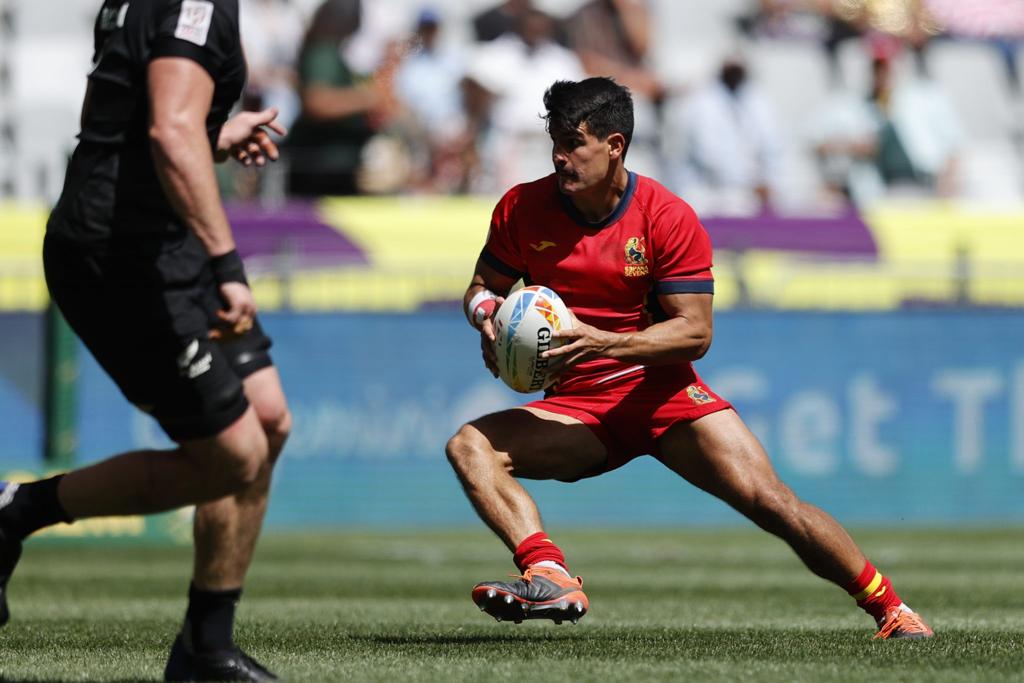
RUGBY 7s AT THE EUROPEAN GAMES
Continuing its growth, the discipline of rugby 7s this year has been incorporated into the European Games’ sports programme. This is huge, as the European Games are the biggest multi-sport event of the year. Alongside another 29 sports – ranging from the young, yet fast-growing disciplines of Break Dancing and BMX Freestyle Cylicing, to the classic disciplines of athletics and various martial arts, Rugby 7s will make its debut at this festival of sports.
The European Games will bring together more than 7000 of the best athletes from across the continent to the city of Krakow, Poland. They will not only compete for the European Gold but also, in some disciplines – as is the case for rugby 7s, for the chance to qualify for the Paris 2024 Summer Olympic Games. The 12-day-long multi-sport event promises to be one of the most exciting competitions in European sports of the year, and rugby 7s will play an important role in this.
The Stadium
Rugby 7s will make its debut at the European Games at Krakow’s famous Henryk Reyman Stadium. All games, from the pool phase to the finals, will be played at this amazing venue – where in fact, the 2022 Rugby Europe 7s Championship Series were contested last summer. Not only is the stadium an incredible location to host the rugby 7s games due to its huge capacity of 33,500 spectators, but also, because it is a landmark for many of the athletes.
Firstly, the Polish captain notes that this stadium is a home venue for them – which is both very exciting and slightly pressuring. She says “A lot of people will be coming to the stadium in Krakow for us. […] It is a lot of pressure because everyone is supporting and cheering for us – all the families, the heads of the
department, etc. So it will be a lot of pressure, but a lot of fun probably.” Furthermore, this is the stadium where the Polish and Spanish national teams won the Rugby Europe Championship Series last year. After asking Juan Ramos about the stadium he commented on the team’s excitement to come back to
play at the venue since “It was really well-liked all around”. He notes that “having gotten the final victory at the Henryk Reyman stadium was incredible”, and he looks forward to getting the chance to play on the pitch where they became European champions only a year ago – and hopefully repeat the experience at the European Games.
ROAD TO THE PARIS 2024 SUMMER OLYMPIC GAMES
A detail about the rugby 7s competition at the European Games of 2023 that many people aren’t aware of yet, is the fact that it will serve as a key qualifying round for the summer Olympic Games hosted in Paris, France next year. In fact, in addition to fighting for European Games medals, Europe’s top teams will try to gain Olympic qualification. The winner of the tournament will automatically qualify for the Olympic Games, and the second and third teams will go to an international repechage tournament. Hence, all medallists from the European Games will thus retain their chance to play at the world’s biggest
sporting event in 2024.
This is a huge opportunity for all the athletes involved in the competition and will surely mark a key turning point in many of the competitors’ lives. As Juan Ramos states, “To qualify for the Olympic Games is the greatest accomplishment that a professional athlete can achieve.”
In fact, with the discipline of Rugby 7s having only been featured in 2 editions of the Olympic Games. That means that fewer nations have been able to compete in this discipline at the Olympics than in many other sports. Thus, it will not only be a great success for the individual players, but also for the Olympic committees and nations. This is highlighted by the Polish women’s team captain as she enthusiastically claims: “If we win the first spot and go through, this will promote us to Paris, and it will just be the best success in Polish history ever.” However, through the excitement, all players are aware of the difficulty of making this dream come to life. While hopes remain high in the Spanish men’s squad, Juan Ramos notes “To qualify is a super difficult task […] You have to be first in Europe to be able to go… it is rather complicated.” A statement with which Karolina Jaszczyszyn agrees by saying “Everyone knows how difficult it is to get to the Olympics – it’s one of the most difficult qualifying contests ever. If you’re there, you are one of the best 12 in the world.” This is because, indeed, only 12 nations in the entire globe qualify to compete at the Olympic Games in rugby 7s. The qualifications for both men’s and women’s work in the following way:
- The host country – France, automatically qualifies.
- Four teams qualify by finishing in the top four in the World Rugby Sevens
Series. - Six teams qualify by finishing first in their respective continental
championships (1 per continent) – which in Europe will be
Kraków-Małopolska 2023 European Games Rugby 7s competition. - The last qualifying place goes to the team that wins an inter-continental
competition.
Thus, the European Games of 2023 are crucial to all the nation’s rugby 7s history. The stakes are incredibly high and all players, coaches and staff know this. Karolina notes that “All 12 teams want to be in these 3 spots, so we can’t make any mistakes.” Hence, the squads have already started preparing for the EG23, having the goal set on winning the European gold and qualifying for the Olympic Games. Serious training is well under way for the national squads. Juan Ramos tells us “[..] whenever we have had a qualifying competition, we have put all our focus and all our resources on it, in addition to training super hard.” This is exactly what the Spanish, Polish and other 12 countries are currently doing as the month of June rapidly approaches. To highlight the importance of these games and qualifications, and how seriously that Polish girls are taking it, an emotional Karolina Jaszczyszyn leaves us with the comment: “If we qualify, it will be the best thing ever… at home in Poland – it would really be something special.”
MESSAGE TO THE PUBLIC
So, we can do nothing more but to wish the teams well in their preparation for the European Games, and wish them the best of luck during the competition. And furthermore, we encourage all rugby 7s fans, as well as any sports enthusiasts to keep an eye out for this extremely exciting competition. As the Spanish captain mentions, “It’s a competition of extremely high level. In fact, the highest level of rugby 7s that can be found in Europe” – and thus, definitely, not one to miss. It is the perfect opportunity to allow this discipline’s growth to continue expanding by reaching a new public and new spectators. As Juan Ramos says “It would be good for the rugby fans and other spectators that want to find out more about the discipline”.
“I hope we can all together – teams, Olympic committees and public –
generate a good atmosphere and sporting spectacle.” – Juan Ramos
